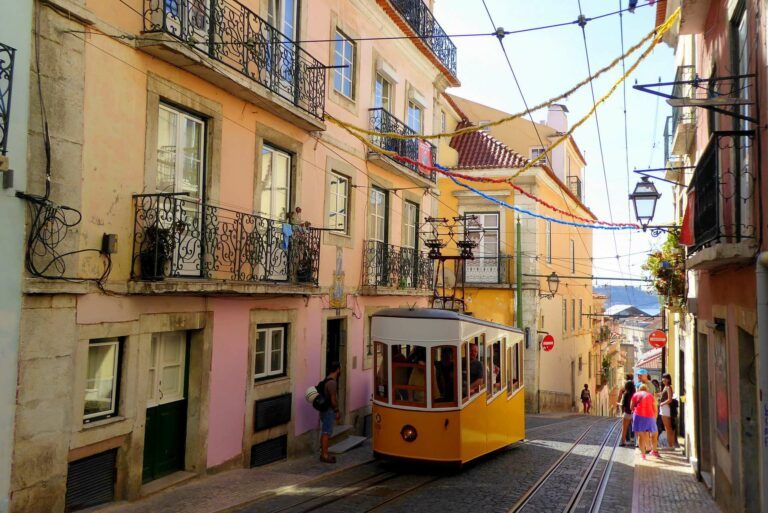The Dutch family who decided to sell everything they own, empty their bank/retirement accounts, and bet it all on Bitcoin in late 2016, have found a place to settle down in the European Union that they believe is a great tax haven for crypto investors.
The Bitcoin Family is originally from the town of Venlo in the Netherlands. The family of five consists of parents Didi Taihuttu and Romaine Taihuttu Smits and their three children Joli, Juna, and Jessa.
As they explained in their first blog post (titled “Lets meet the family”), which was published on 3 June 2017, although they owned “a nice and healthy company,” they decided to do something about their dream of “exploring the world.”
Since Didi (the husband) was “on the border of a burnout” and as a family they badly “needed a break,” they liquidated all of their assets, and started their new life by booking flight tickets to Bangkok, Thailand.
In December 2020, the “Bitcoin Family” gave an interview to MacKenzie Sigalos, a Senior Producer for CNBC Digital, who published an article based on this interview on 5 December 2020.
According to the CNBC article, the Bitcoin Family went all in on Bitcoin when the price was around $900. They then made a promise to themselves to never pay for any goods/services until they “found a person who was willing to accept bitcoin.”
Since the Bitcoin Family started their new life, they have spent time in 40 countries. Despite the increasing popularity of cryptocurrencies over the past few years, it has, at times, been difficult to only pay with Bitcoin, but according to the CNBC article,”through a combination of bartering, bargaining, bitcoin debit cards, and convincing vendors to accept the cryptocurrency, the family has managed to traverse much of Europe, Asia, and Oceania.”
In August 2021, Didi — the 43-year old patriarch of the family — told CNBC that they are protecting most of their Bitcoin holdings by keeping the BTC stored in “secret vault” on four continents:
“I have hidden the hardware wallets across several countries so that I never have to fly very far if I need to access my cold wallet, in order to jump out of the market.“
Apparently, there are “two hiding spots in Europe, another two in Asia, one in South America, and a sixth in Australia.”
According to a report by CNBC that was published yesterday (February 6), the Bitcoin Family has decided to settle down in Portugal.
Didi — the 43-year old head of the family — told CNBC:
“You don’t pay any capital gains tax or anything else in Portugal on cryptocurrency… That’s a very beautiful bitcoin heaven.“
CNBC says that “as long as you don’t earn cryptocurrency for providing services in Portugal, you’re in the clear.”
It seems that Didi’s brother and sister have also decided to bet big on Bitcoin by “selling their houses and investing that cash into bitcoin.”
Didi said:
“We will all be traveling together as one big bitcoin family which is, of course, really cool.“
CNBC’s report went on to say that “unlike the U.S., which treats virtual currency as property, taxing it in a manner similar to stocks or real property, Portugal views cryptocurrencies as a form of payment.”
Shehan Chandrasekera, a CPA and head of tax strategy at crypto tax software company CoinTracker.io, explained toCNBC Portugal’s policy on crypto taxation:
“Capital gains resulting from crypto transactions such as cashing out and crypto-to-crypto trades are not subject to personal income taxes... This makes Portugal a really attractive place for crypto users to live.“
Also, CNBC says that “crypto transactions or payments, as well as the exchange of bitcoin for fiat money, are not subject to a value-added tax, or VAT.” It also mentions that “the only exception to the country’s generous crypto scheme relates to companies registered in Portugal that deal in crypto.”
Didi told CNBC:
“If you earn cryptocurrency by providing services in Portugal, you need to pay tax on those cryptocurrencies, but I don’t earn anything, at the moment, in Portugal. So for me, it’s 0% tax.“
CNBC points out that “citizens of the European Union have the right to permanent residence in Portugal, and for non-EU citizens, Portugal offers expats a few paths to residency, including the golden visa and the D7 Visa (also known as the retirement visa or passive income visa), both of which tend to attract wealthy foreigners.”
The Bitcoin Family also told CNBC that “they want to disrupt the typical expat experience in Portugal by building their own crypto village” and that they are “currently shopping for real estate.”
Disclaimer
The views and opinions expressed by the author, or any people mentioned in this article, are for informational purposes only, and they do not constitute financial, investment, or other advice. Investing in or trading cryptoassets comes with a risk of financial loss.
Image Credit
Featured Image via Pixabay









